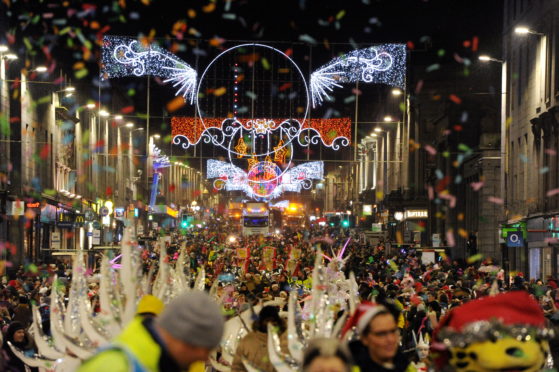If you have ever heard an elderly person describe how Christmas used to be then you will know two things.
First, the celebration of Christmas was simpler and began much later.
Second, people gave and received less, and the festivities themselves kicked off on Christmas Eve.
Those of my parents’ generation spoke of the Christmas stocking being a real sock, and remembered the delight and excitement of finding at the bottom of the sock a sixpence and an orange.
In my office we are having a discussion about when to put up the Christmas tree. We will do this in early December but we can remember times when this would have happened very close to Christmas Eve, if not Christmas Eve itself.
In those days when Christmas began later, Advent was much more of a thing.
Advent calendars helped in the countdown to Christmas, a window opened each day to reveal a tiny picture. How times have changed. Today’s Advent calendars can offer you a small gift for each day, anything from chocolate to a small bottle of whisky.
The waiting has been taken out of Advent. What we have instead is a whole season of consumption and Christmas songs.
We can eat mince pies from November through to Christmas, work place parties have already begun, and everywhere we go we hear the familiar Christmas music playing in the background.
We will keep this up until Christmas Day itself, which we celebrate with an enormous dinner, and then we will be done, ready to move onto the next season of the year, the Sales.
All of this is very different from an older pattern of keeping Advent and Christmas, where a season of waiting and self-denial was followed by a shorter season of twelve days of celebration. Waiting is not something that we find easy, so why should we deliberately delay gratification when we can buy and consume whatever we want right now? Why should we make ourselves, or our children, wait?
There are many reasons why waiting is good for us. Taking time, and doing things very slowly can be of great benefit. Many of the skills we need in life require patience, we have to apply ourselves over considerable time to learn and to improve.
What we can do right now might be OK, but what we might achieve with patience could be much better. When we see the gaps in our lives and do not rush to fill them we can understand that we have other options and possibilities. Many of the things that are most worthwhile in life, from building a relationship to learning a new skill, take time.
When we decide to wait for something we develop and build character in ourselves. We have to persevere, and this has an effect on us emotionally, physically and spiritually. We learn to ‘hang in there’, to try a little harder, to give something another go.
When we persevere with people we give them a second, or third or fourth or more, chance. Waiting patiently for someone or something gives other people the time they need to do or be their best. It’s not that we don’t want life to change, but we are able to wait patiently as it does.
All of this practice of waiting has other benefits in our lives. Although we sometimes choose to wait, most of our waiting comes to us uninvited.
We wait for the right person to come into our lives so that we might have the right partner with whom we can share our life. We wait for the right job to come along. We have to wait for hospital appointments and treatment. We have to wait to get better.
All of these waiting times are much more demanding for us. If we have not learned how to wait for small things in life, how will we manage when the wait is long and arduous?
We live in politically uncertain times, waiting to see what the future will bring. For some this uncertainty is deeply unsettling. It might then be very tempting to get lost in the anxiety of all of this and rush into doing things or panic that we feel we ought to be doing more.
Knowing how to wait with patience enables us to be good friends and supporters of those who find waiting difficult.
We all know people who cannot wait alone, who are frightened or troubled by having to sit with uncertainty for too long. Unhappy waiting can lead to mental and physical problems that are difficult to reverse.
How much better it would be if we were all able to develop our capacity for waiting. What a gift this would be.
The Rt Rev Anne Dyer is Episcopalian Bishop of Aberdeen and Orkney and Scotland’s first female bishop

